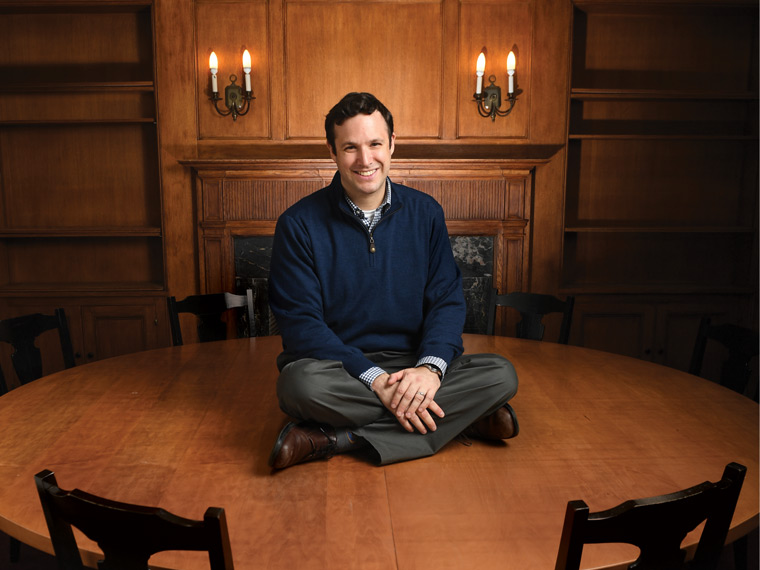In the heat of a presidential campaign that divided the nation into two camps barely able to communicate with each other, Sam Abrams (politics) took students from his course “Presidential Leadership and Decision Making” on a field trip deep into what most of them regarded as enemy territory: a Donald Trump rally on Long Island.
“I’m not a Trump supporter and I never will be,” Abrams says. “I told them, ‘Look, this isn’t a pro-Trump anything. I want you to see what he’s like, how he controls an audience. More important, I want you to see who’s in the audience and what they’re reacting to.”
Abrams wanted to give his undergrads something he believes most college students these days aren’t getting—what he likes to call “viewpoint diversity.” He wanted them to see “what the world looks like that’s not pro–Bernie Sanders.”
When he came to Sarah Lawrence eight years ago, Abrams says, he was viewed as “the token raging conservative, but the reality is I’m not even close to that.” In a 2016 New York Times op-ed, he described himself this way: “In most places I’d be considered a moderate, but in the campus context I might as well have been Ted Cruz.”
That was the same op-ed piece that drew wide attention to his research about the leftward ideological shift in academia over the last quarter century. Using previously unstudied survey data, he found the shift was especially pronounced in New England, where liberal faculty members now outnumber conservatives 28-to-1, up from 5-to-1 in 1989.
“The academy has always leaned to the left, but we’re not leaning now, we’re full-blown tilted,” he says.
He reiterated the point in an essay published last March in The American Interest. “When students are shielded to divergent viewpoints and counterarguments on the issues that are more salient to them, the students understandably become confused and angered by others who see the world differently,” Abrams wrote. “This diminishes our national discourse and frays our civic bonds.”
“In most places I’d be considered a moderate, but in the campus context I might as well have been Ted Cruz.”
Abrams grew up in Philadelphia, an Eagle Scout who did his service projects around Independence Hall, and a precocious science-fair whiz who spent high school summers doing research at NASA’s Johnson Space Center in Houston. He went to Stanford thinking he’d become a planetary scientist and study the soil of the moon and Mars. But when he took some public policy classes, he saw that political science really could be a science, and switched to the subject in which he later earned his doctorate at Harvard.
“I realized I have analytical rigor,” he says. “It doesn’t have to be fuzzy. We can bring science and scientific method to understanding policy questions.”
Last year, Abrams was appointed a visiting scholar at the American Enterprise Institute, a conservative think tank in Washington. More than 40 of his students have gone on to work in DC, and he sometimes bumps into them on Capitol Hill.
“I have absolutely no agenda to convert anyone to anything about anything,” he says. “To get to the truth we have to have disagreement, and we’re not doing that now. The role of education is to elevate us, not necessarily to have solutions but to know how to think, to know how to have discourse, and to know how to debate. That’s why I’m so preoccupied with making sure students get a rounded experience.”
Written by Kevin Coyne
Photo by Chris Taggart
